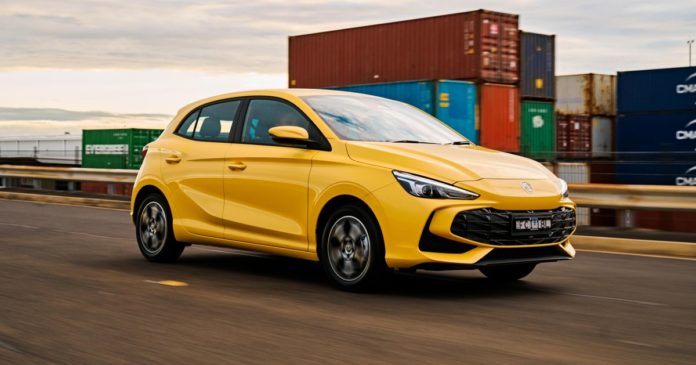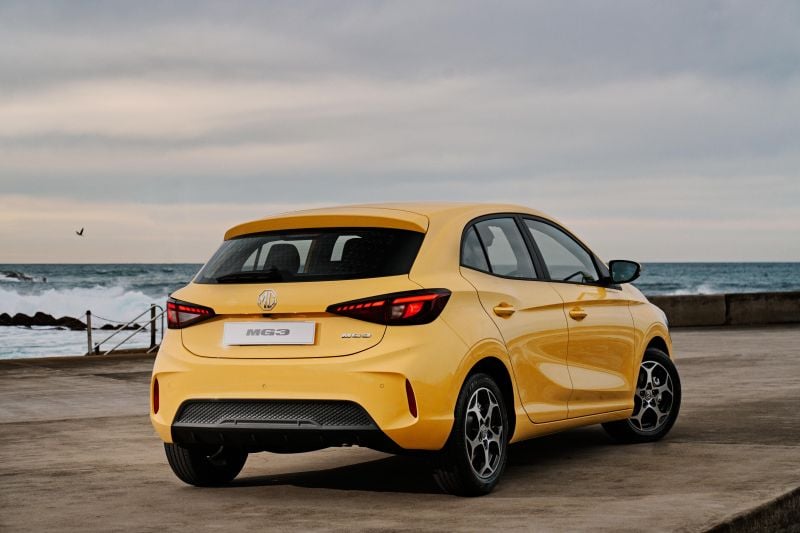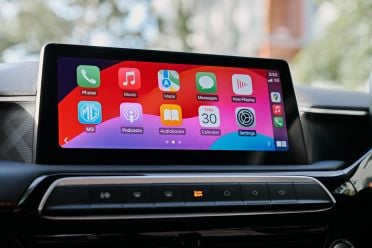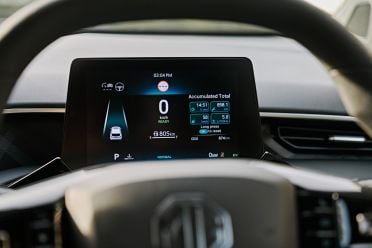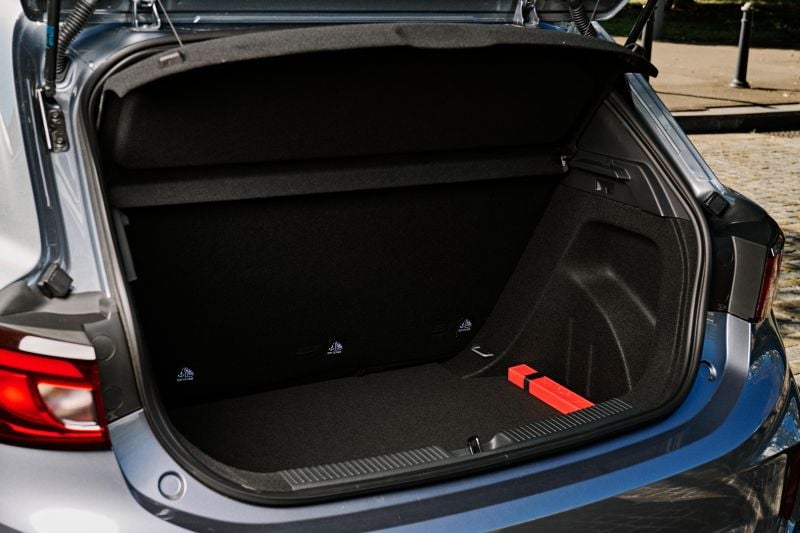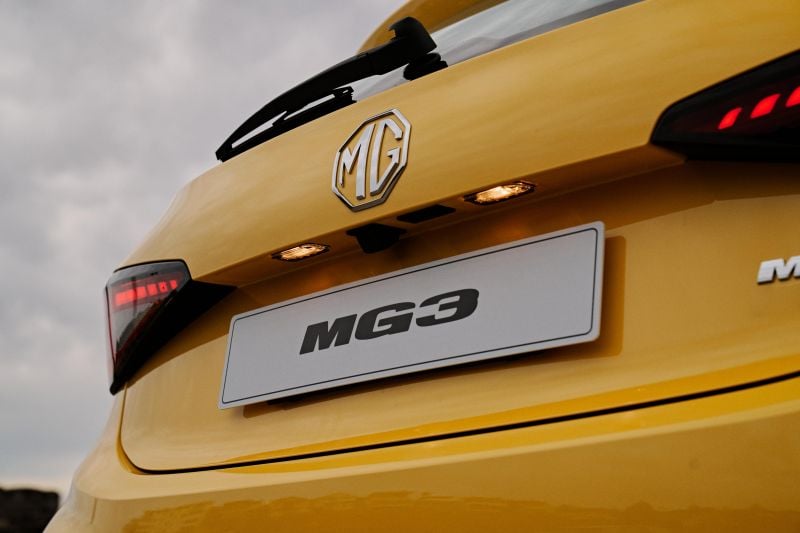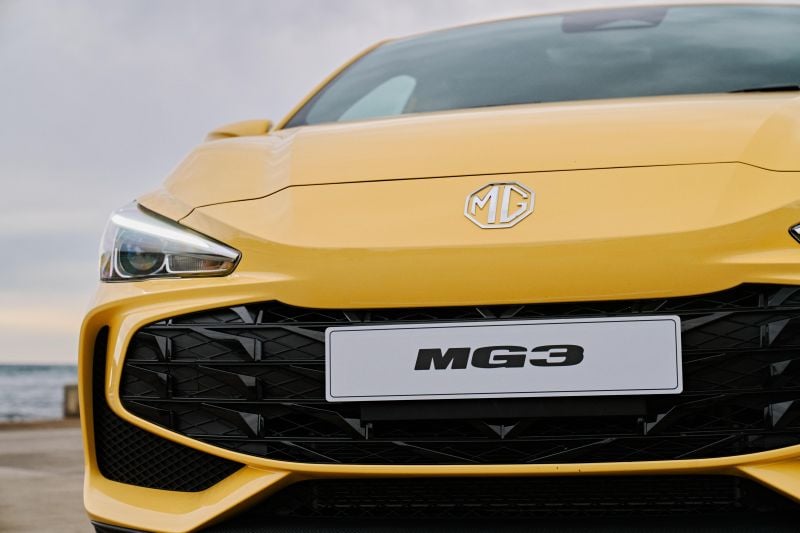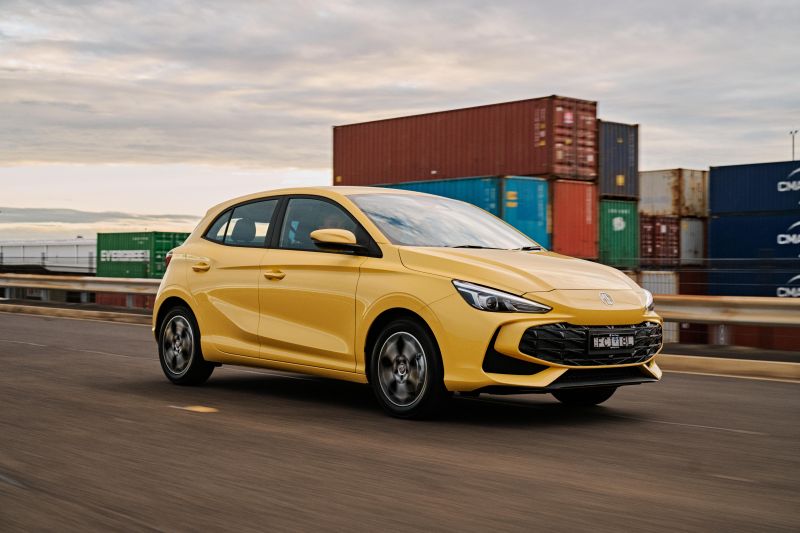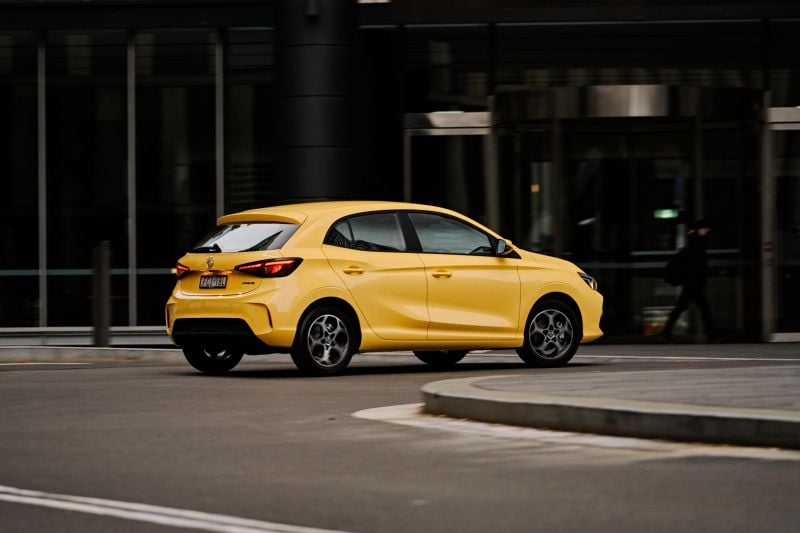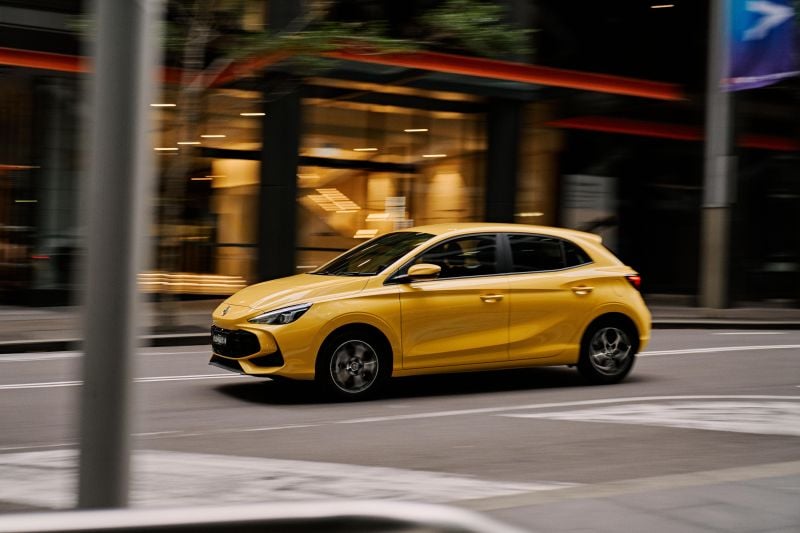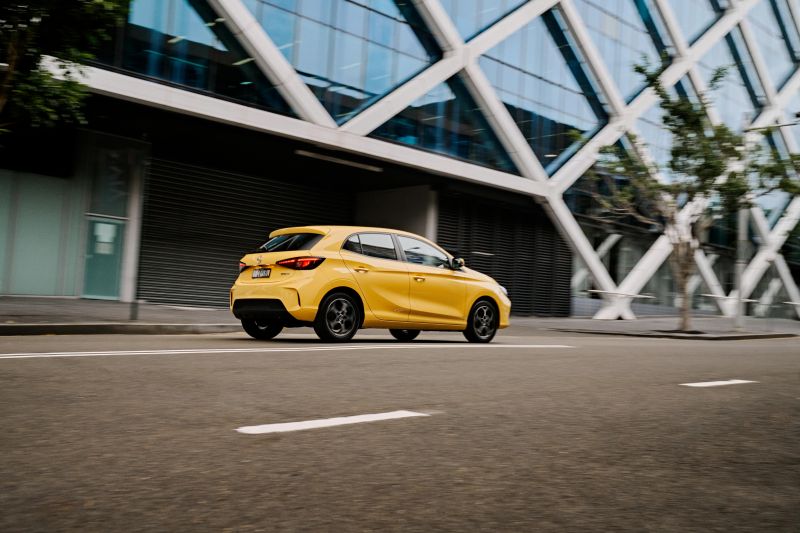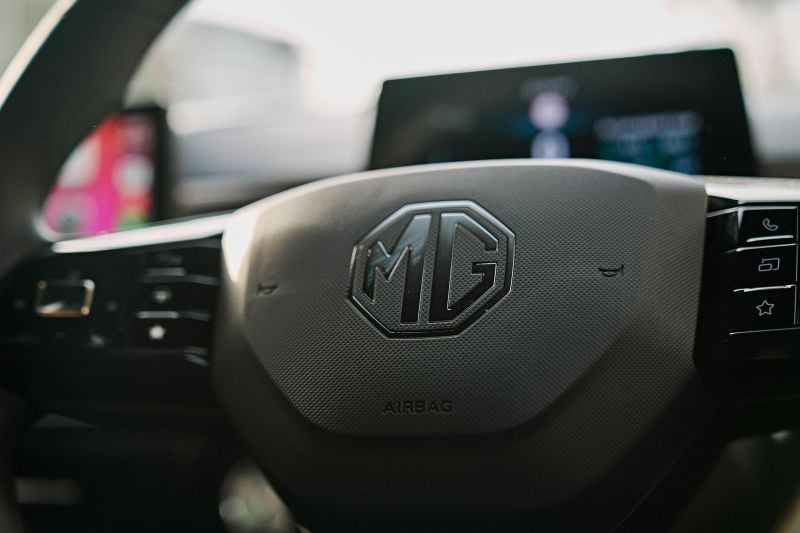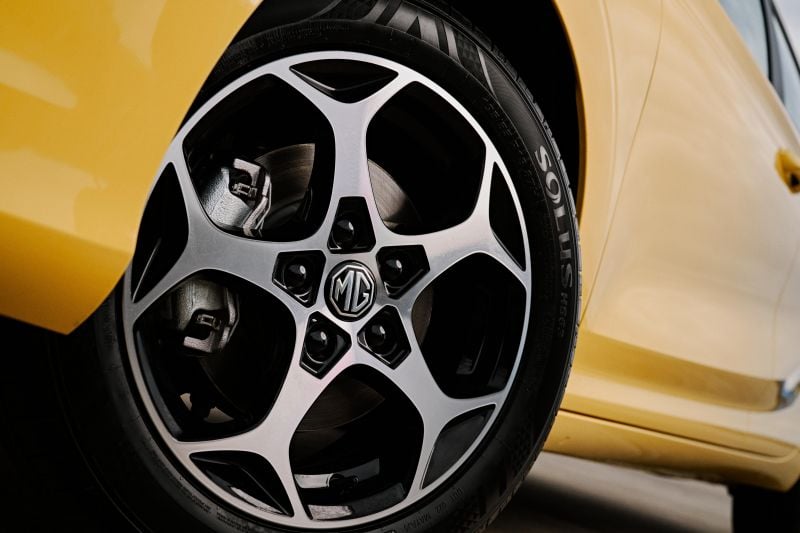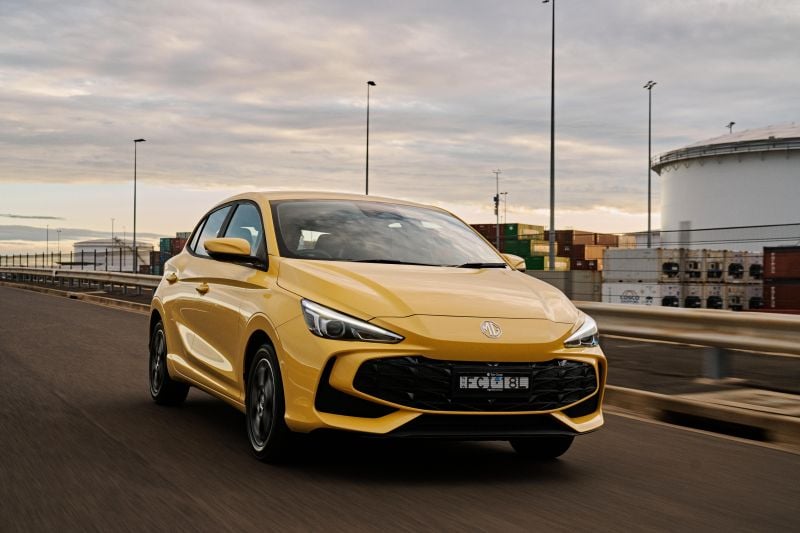The new-generation MG 3 has introduced petrol-electric hybrid tech, and I was pretty impressed by the MG 3 Hybrid+ Essence I reviewed recently.
But if you want to save a bit of money – $4000, in fact – you might actually be better off going for the standard petrol versions of the MG 3.
There are still two models to choose from, and while they are considerably pricier than the existing MG 3, it’s new from the ground-up including the engine, design, tech, and more.
I drove the 2024 MG 3 Essence for a week – here’s what I thought.
How does the MG3 compare?
View a detailed breakdown of the MG3 against similarly sized vehicles.
MG
MG3
How much does the MG 3 cost?
As mentioned earlier, there are four options in the new MG 3 range in Australia.
| Model Variant | $RRP |
|---|---|
| 2024 MG 3 Excite | $23,990 |
| 2024 MG 3 Essence | $25,990 |
| 2024 MG 3 Hybrid+ Excite | $27,990 |
| 2024 MG 3 Hybrid+ Essence | $29,990 |
Prices exclude on-road costs
To see how the MG 3 lines up against the competition, check out our comparison tool.
What is the MG 3 like on the inside?
I said in my previous review the improvement to the interior is massive, and I stand by it after spending another week in one of these cars.
-
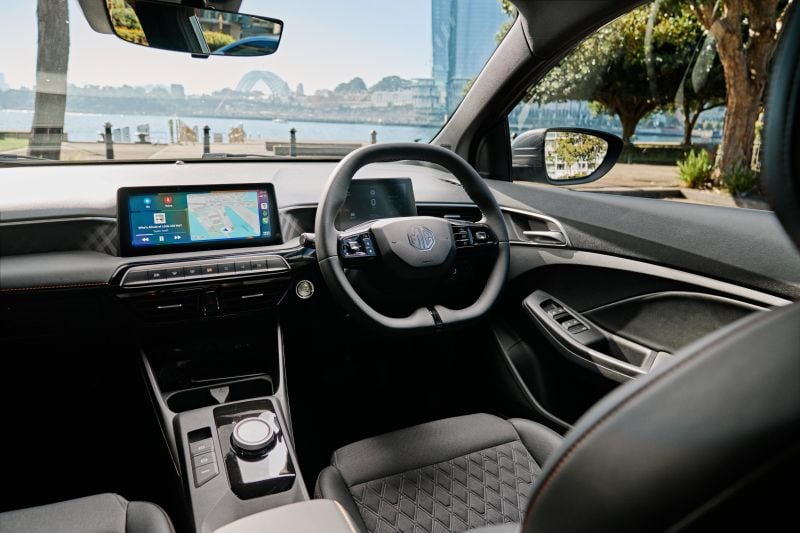
Hybrid+ Essence shown
The digital screens – a 10.25-inch unit for multimedia, and a 7.0-inch screen for the driver info display – look smart and add a heap of wow factor to the cabin.
The infotainment screen has an array of buttons below for some quick controls – i.e. volume up/down, a home key, A/C on/off, front and rear demister buttons, and a fan-speed button – but you still don’t get a temperature or fan toggle. Those incremental adjustments still need to be made through the screen.
The menus take some learning, including the MG Pilot safety tech screen which you might want to get to grips with. More on that when we get to the drive experience.
As you would expect, there is Apple CarPlay and Android Auto smartphone mirroring, but disappointingly it’s still a wired setup and there’s also no wireless phone charger, either. Satellite navigation is standard, however. I think those priorities might have been the wrong way around…
In my opinion the steering wheel feels too big for the size of the car and the interior space, and the controls on the steering wheel are gloss black plastic, and they attract fingerprints and smudges.
Those controls are a bit tricky, too – the steering wheel icon is the cruise control button, and you need to hit the little ‘pages’ icon on the right side to dive into the driver info screen using the arrow trigger, otherwise you will be skipping songs or turning up/down the volume.
But you can adjust other elements with those buttons too, such as the fan speed and temperature for the A/C. So, maybe that’s the justification for not having those buttons?
However, if you have Apple CarPlay connected (and presumably Android Auto) that shortcut system doesn’t work, and during my testing the fan control button didn’t work when smartphone mirroring was active either. A software glitch that can be ironed out, maybe – but it’s annoying.
-
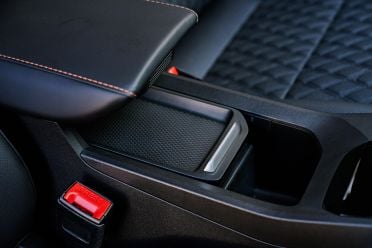
Hybrid+ Essence shown -
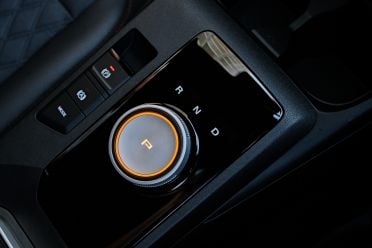
Petrol models get a traditional gear selector instead of the rotary dial that’s found in the hybrid, and you still get a pair of cupholders, a sliding tray section that hides another spot for loose items between the front seats.
There’s a comfy centre armrest and bottle holders in the doors as well. But the plastics are all on the hard and shiny side, meaning things can move around and rattle about.
The seats offer good comfort and decent adjustability for people of different shapes and sizes, but there is a hard edge to the plastic surround near the cushion, which might lead to a bum bruise or two. You get tilt adjust for the steering column, but annoyingly, it doesn’t have reach.
My test car featured black trim, which isn’t quite as visually appealing as the lighter trim in the hybrid test car I had, but there’s still a mix of fake leather and cloth which is nice enough, and I like the crosshatch design finishes on the dash, which are reminiscent of the last version.
-
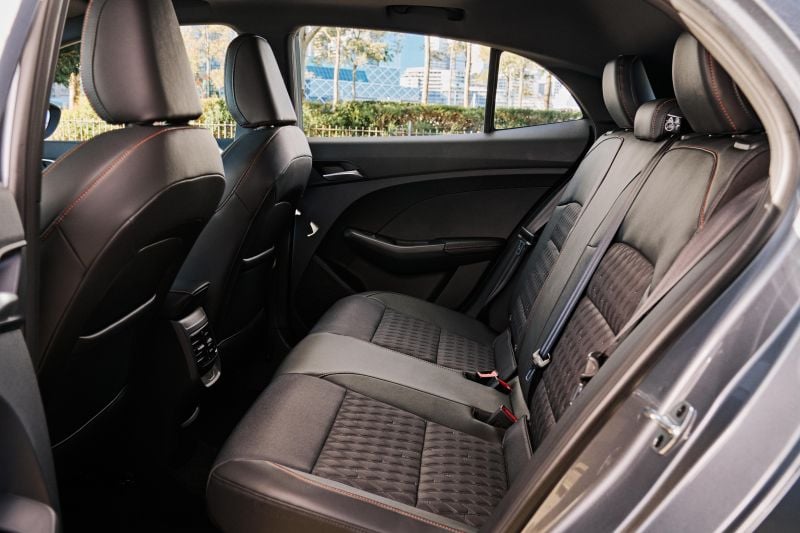
Hybrid+ Essence shown
One omission I can’t cop is the lack of an auto-dimming rearview mirror – annoying for those drive a lot at night!
But there is a USB-A port in the mirror housing for a cleanly installed dash cam. That’s in addition to USB-A and USB-C ports below the infotainment screen for charging and connectivity.
Choose the Essence grade and you get a small opening sunroof – which certainly makes the cabin feel a bit more airy, as the black finish interior includes a very dark headlining.
Back seat space is very good for a car of this size – my 182cm/6’0” frame was able to slide in behind my own driving position with respectable knee and toe room. Headroom is also good, but taller peeps might need to watch their noggin getting in and out.
Three small adults across the back is a possibility, but three child seats might be a stretch. My three-year-old daughter’s forward-facing child seat was able to slot in with enough room for her to swing her legs a bit, and still fit an adult in the seat ahead. And yes, there are outboard ISOFIX points and top-tethers for all three rear seats.
Lovely to see there are directional air vents in the back too, a USB-A port for charging devices, as well as map pockets and bottle holders in the doors; but no centre armrest.
The boot has been upsized compared to the last model, with 293 litres of cargo capacity with the seats up. There’s a lamp and shopping bag hook in the boot, too.
And, in a plus for those who value a spare, there’s a space-saver under the floor of the petrol models – not the case for the hybrids, which make do with a tyre repair kit.
| Dimensions | MG 3 |
|---|---|
| Length | 4113mm |
| Width | 1797mm |
| Height | 1502mm |
| Wheelbase | 2570mm |
| Boot space – seats up | 293L |
| Boot space – second row folded | 983L |
| Kerb weight | 1199kg – MG 3 1308kg – Hybrid+ |
| Maximum towing capacity | 500kg |
To see how the MG 3 lines up against the competition, check out our comparison tool.
What’s under the bonnet?
Petrol versions of the MG 3 feature a new 1.5-litre petrol engine driving the front wheels.
| Technical Specifications | MG 3 |
|---|---|
| Engine | 1.5-litre 4cyl petrol |
| Engine power | 81kW – 6000rpm |
| Engine torque | 142Nm – 4500rpm |
| Transmission | CVT |
| Drive type | Front-wheel drive |
| Fuel consumption – claim | 6.0L/100km |
| Fuel type | 91 RON |
| Fuel tank | 45 litres |
| CO2 emissions – claim | 139g/km |
It’s not a carryover unit, despite the same capacity and similar outputs, according to MG. There’s a continuously variable transmission (CVT), which replaces the old four-speed auto.
Fuel consumption has dropped as the new engine runs on the Atkinson cycle, and the official combined cycle figure is 6.0 litres per 100km (previously 6.7L/100km).
On test I didn’t quite see that good of a number. My average across a couple of hundred kays of mixed driving, including freeway, open road as well as urban traffic jams, I saw 7.9L/100km. I was not impressed by that.
At least it no longer needs 95 RON premium unleaded like the outgoing car version. That said, while the MG 3 petrol can run on 91 RON the Hybrid+ retains the requirement for premium fuel.
To see how the MG 3 lines up against the competition, check out our comparison tool.
How does the MG 3 drive?
The new MG 3 is a big improvement in broad terms, and the petrol model is a pretty decent proposition, if not as exceptional as the hybrid.
The 1.5-litre four-cylinder engine is hardly a firecracker, and there will be some buyers out there that won’t like the fact it has shifted to a CVT automatic instead of a traditional torque converter gearbox.
But the reality is the CVT used here is actually pretty good, with a relatively hushed nature to it – one of the main arguments against CVTs is that they can be droney and noisy, and while there is some of that ‘elasticity’ to the way the car accelerates at times,
It’s not as zippy as the hybrid, but it gets along with a decent level of urgency, responding well to sudden stabs of the accelerator when you’re already at pace. At a standstill or in slower moving situations, there’s a bit more play to the acceleration, and it’s not quite as thrusty. The CVT has eight ‘shift’ points so it never gets too raucous.
But also worth noting is a little bit of lag when you’re parking – if you’re doing a reverse-parallel move, for instance, you might find that there’s a minor hesitation if you quickly shift between R and D (or D and R), meaning you might feel like you’re driving on your tippy-toes a bit.
The braking is a bit more surefooted though, with a decent response to the pedal. It certainly has a tad more confidence in the controllability of the pedal than the hybrid, which has more of an ‘airy’ quality to the top of the pedal travel.
The fact the new MG 3 has a longer wheelbase and a wider track makes it feel more planted on the road surface, and it rides with more comfort and better control than the last model, too.
It’s not the most supple suspension for a small car, but it does have a certainty to it when it comes to handling lumps and bumps at speed or in urban driving. Sharp edges can upset progress a little, but it’s far more mature to drive than the last MG 3.
The steering is let down most by a wheel that’s too large for the size of the car, in this reviewer’s opinion.
It takes away that feeling of nimbleness you might expect in a tiny little car like this, though the steering action is still predictable and it is simple enough to park. It just feels like you have to manhandle the car a bit too much for something so urban-focused.
The safety systems are a ‘like it or lump it’ option. I didn’t like the emergency lane keep system, which I switched off for most drives because it can be a bit pushy and it also dulls the feel on-centre at freeway pace.
The speed-sign recognition system is also irritating, though not as bad as some other more incessant beepy tech (looking at you, Hyundai and Kia).
Beyond that, the camera system that reads speed signs seems to think 110km/h, as is common on freeways around Sydney, is actually 70km/h. A few other brands have this issue (Mazda, for example), and it is annoying.
There is some road noise to contend with at highway pace as well, so for commuters hitting the open road often that could be a consideration.
But again, more broadly, it is a significantly more enjoyable car than the model it replaces.
What do you get?
The MG 3 range is split into base-model Excite and top-spec Essence grades, with a few minor differences between the petrol and hybrid versions.
MG 3 Excite standard equipment:
- 16-inch alloy wheels
- Space-saver spare wheel
- Halogen headlights
- LED daytime running lights
- Auto headlights
- Rear fog light
- Push-button start
- Six-way manual driver’s seat adjustment
- Four-way manual passenger’s seat adjustment
- Reversing camera
- Rear parking sensors
- MG Pilot ADAS suite – details in safety section below
MG 3 Hybrid+ adds:
- No spare wheel – tyre repair kit
- Auto climate control
- Dial type gear selector
- Drive modes
- Pedestrian warning sound – external speaker
MG 3 Essence adds (over Excite):
- Projector LED headlights
- Keyless entry system
- Rain-sensing wipers
- Sunroof
- Fake leather and cloth trim
- Leather steering wheel
- Sunglass compartment
- Rear map pockets
- Front centre armrest
- Satellite navigation
- DAB digital radio
- Connected mobile services (iSmart compatibility)
- 360 degree surround-view camera system
Is the MG 3 safe?
The new-generation MG 3 is a very different machine to its predecessor when it comes to safety tech.
The last one didn’t have any active safety gear, but this one is comprehensively equipped with an array of advanced safety features. However, keep in mind that at the time of publication, this remains unrated by Euro NCAP or ANCAP.
Standard safety features include:
- 6 airbags
- Dual front
- Dual front-side
- Dual side curtain
- Autonomous emergency braking (AEB)
- Lane departure warning
- Lane keep assist
- Emergency lane keep assist
- Adaptive cruise control
- Intelligent cruise assist
- Traffic jam assist
- Steering, acceleration, braking assistance
- Blind-spot monitoring
- Rear cross-traffic alert
- Intelligent speed assist
- Reversing camera
- Rear parking sensors
- Tyre pressure monitoring
Essence models add:
Hybrid models add:
- Pedestrian warning system – external
How much does the MG 3 cost to run?
MG offers a seven-year, unlimited kilometre warranty for its range in Australia, and there’s a seven-year roadside assistance plan included too.
2024 MG 3 service pricing:
| Service Interval | MG 3 | MG 3 Hybrid+ |
|---|---|---|
| 1 year, 10,000km | $234 | $235 |
| 2 years, 20,000km | $323 | $349 |
| 3 years, 30,000km | $352 | $341 |
| 4 years, 40,000km | $536 | $628 |
| 5 years, 50,000km | $409 | $492 |
CarExpert’s Take on the MG 3
The MG 3 petrol isn’t nearly as efficient as the new Hybrid+, but for those who can’t spend the extra $4000 or are happy with the more familiar petrol powertrain, it could still be a solid small car choice.
The improvements to tech and safety gear have made this a more complete city car than it ever was.
And while some of those driver assistance systems may annoy some buyers, there’s a lot to like about this little car even if it doesn’t have as little a price this time around.
Click the images for the full gallery
MORE: Buy an MG 3
MORE: Everything MG 3

